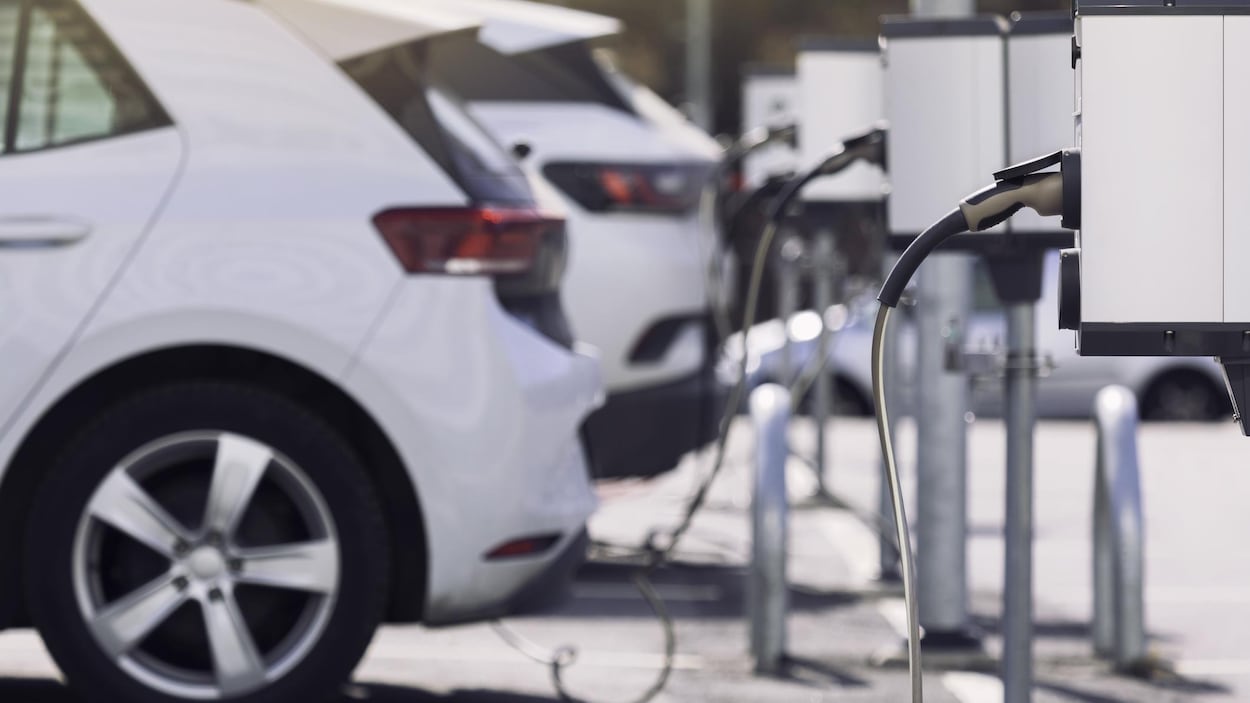Several automakers are seeing slowing growth in electric vehicle sales in North America, as the general public appears hesitant to make the jump from gasoline to electric.
The first wave of buyers were early adopters, tech savvy, connected and pro-environment. They quickly bought
explain Deanne Millisondirector of government affairs at Ford Motor Company.
We are past this stage and are entering the next wave called the Early Majority. This concerns many more people who are thinking about buying a car, but still need to educate themselves before buying.
The automaker saw its electric car sales grow 80% between February 2023 and 2024, according to Deanne Millison. The anticipated increase for this segment this year is, however, much more modest, around 30%.
Better infrastructure and education
Toyota also expects a slowdown in its sales of electric vehicles. According to Amy Stanleyportfolio planning manager at Toyota North America, one reason comes from a standardization of supply chains.
Waiting times to obtain an electric car are shorter, which gives consumers more choice of brands.
However, she also notes many concerns that stand in the way of the adoption of electric cars. The price and range of the vehicle are always among the first questions.
Increasingly, more attention is being paid to the charging experience, she adds. At the conference CERAWeek by S&P Global, Amy Stanley also recounts his setbacks finding public charging stations that work during a stay in New York. The other panelists agree vigorously.

Amy Stanley (on both screens) believes that switching to an electric vehicle is a life change for the general public.
Photo: Radio-Canada / Tiphanie Roquette
Amy Stanley believes that the automobile industry has its role to play in convincing drivers. Offer vehicles more popular with consumers, such as SUVshould help, she said.
She also believes that the financial incentives offered by many governments remain essential to convince the rest of the population.
We have not yet reached that stage where customer desire outweighs the lure of a financial incentive.
Unnecessary objectives, according to Chevron
The president and CEO of the oil company Chevron, Mike Wirthbelieves that the slowdown in the growth of electric car sales shows the uselessness of government policy.
The American government wants two-thirds of new vehicles to be electric in 2032. In Canada, the Liberal government aims for all new vehicles sold in 2035 to be electric.
It's great technology, but electric cars don't work for everyone and we're seeing that right now in consumer choices
threw Mike Wirth at the CERAWeek conference.
He stressed that the company must make its investment decisions based on current reality and not based on models on a piece of paper
.
Elaine Buckberg, principal investigator at Harvard Salata Institute for Climate and Sustainability, recalls, however, that the current trend is towards a slowdown in the growth rate of electric vehicle sales and not a decrease.
We go from a rate of 70% to more than 40%. This remains an incredible increase.
With information from Kyle Bakx

